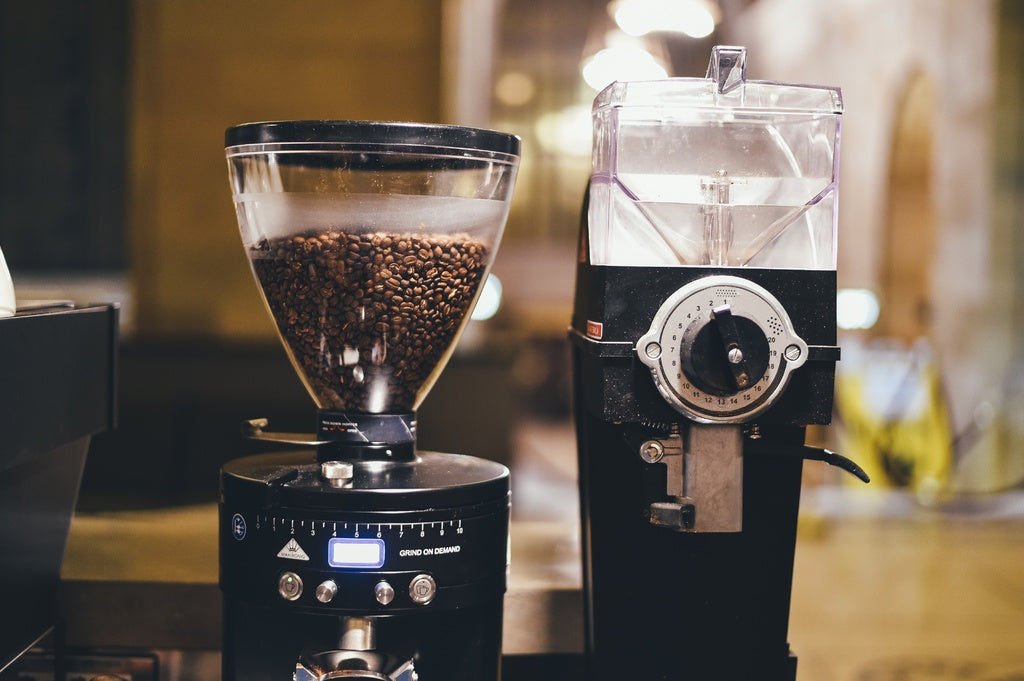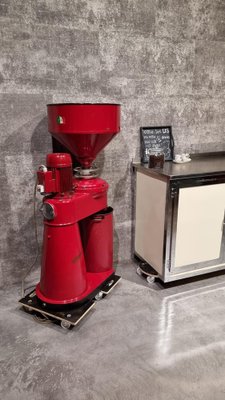Key Benefits of Using an Industrial Coffee Grinder for Your Business
Key Benefits of Using an Industrial Coffee Grinder for Your Business
Blog Article
How to Pick the Perfect Industrial Coffee Mill for Your Business
Selecting the excellent industrial coffee mill for your business is a complex choice that calls for mindful factor to consider of several important variables. It is necessary to assess your details grinding demands, consisting of the volume of coffee processed and the desired grind consistency, as these elements directly influence flavor and customer contentment. In addition, recognizing the different types of mills offered can dramatically influence your operational efficiency. As you browse these considerations, one must also evaluate the ramifications of budget plan and upkeep. What other elements could make or break your option?
Assess Your Grinding Requirements
When selecting a commercial coffee grinder, one must initially assess their grinding requirements to make sure ideal performance and uniformity. This preliminary assessment involves recognizing the quantity of coffee to be refined daily, in addition to the wanted work dimension for various developing approaches. A high-capacity grinder might be necessary for organizations offering big amounts of coffee, while smaller procedures might discover a more portable model adequate.
In addition, it is vital to think about the types of coffee beans being utilized, as various beans may call for details grinding strategies to attain the very best taste profile. As an example, oily beans may demand a grinder made to deal with such characteristics without clumping or overheating.
Another vital element is the called for grind consistency. Specialty coffee services frequently require accurate grind dimensions to boost extraction and taste, making it essential to choose a mill that can provide consistent outcomes. Reviewing the available space and electric demands will certainly help in selecting a mill that fits effortlessly into your operational operations. By thoroughly assessing these factors, organizations can make enlightened decisions that line up with their coffee grinding needs, ultimately leading to a remarkable item and pleased customers.
Understand Grinder Kind
Comprehending the various sorts of industrial coffee grinders is critical for making an educated choice that meets particular functional requirements. There are largely 2 classifications of grinders: blade mills and burr grinders.
Blade mills make use of spinning blades to slice the coffee beans, causing an inconsistent work dimension - Industrial Coffee Grinder. While they might be much more budget-friendly, they are often not suitable for commercial applications where precision is important
On the other hand, burr grinders provide a more consistent grind by crushing the beans between 2 surfaces. They can be additional classified into flat burr and conical burr mills. Flat burr mills supply a consistent work dimension and are usually preferred for espresso prep work, while cone-shaped burr grinders are flexible and can deal with a variety of mixture approaches, from coffee to French press.
When choosing a mill, take into consideration the specific needs of your organization, consisting of wanted grind uniformity, production quantity, and the kinds of coffee beverages you prepare to offer - Industrial Coffee Grinder. Each mill type has its benefits and constraints, so understanding these nuances allows educated decision-making that aligns with functional goals
Evaluate Grind Dimension Consistency
Attaining grind dimension uniformity is essential for producing top notch coffee, as variants in bit dimension can significantly impact extraction and flavor. When choosing an industrial coffee grinder, it is essential to evaluate just how well the equipment keeps uniformity in grind dimension across various batches. Irregular work sizes can lead to unequal extraction, resulting in a mug that might taste overly bitter or weak.
To analyze grind dimension consistency, think about mills with functions such as adjustable work setups and top quality burrs. Burr grinders, specifically, master generating consistent particle dimensions compared to blade grinders. The material and form of the burrs play a vital role, with stainless-steel and ceramic choices offering toughness and precision.

Consider Production Ability
In the busy world of coffee manufacturing, taking into consideration manufacturing capacity is extremely important for organizations aiming to meet need without compromising quality. The manufacturing ability of a commercial coffee mill straight affects a firm's capacity to meet orders successfully, manage inventory, and reply to changing market patterns.
When assessing production capacity, it is necessary to evaluate the grinder's output rate, normally measured in pounds per hour. This dimension ought to line up with your company's predicted sales volume and development targets. For instance, a coffee shop with a high turnover might need a mill that can process several hundred pounds daily, while a smaller sized procedure could be adequate with a reduced capability design.
In addition, think about the type of coffee being processed. Various beans and blends may influence grinding speed and effectiveness, demanding a mill efficient in managing varied production demands. It's also worth factoring in the mill's capability to keep constant quality under high outcome problems, as any kind of changes can impact the end product.
Eventually, selecting a mill site web that matches your organization's production capacity check will ensure you remain affordable and responsive to client expectations.

Spending Plan and Upkeep Elements
When reviewing the appropriate commercial coffee mill, budget plan and maintenance elements play a substantial function in the overall decision-making procedure,. A preliminary investment in a high-quality grinder can yield long-lasting benefits, however it's necessary to establish a clear spending plan that straightens with your service's functional requirements. Take into consideration both the purchase cost and possible functional prices, such as energy consumption and replacement parts.
Industrial coffee grinders require normal maintenance to ensure optimum performance and durability. Review the manufacturer's suggestions for upkeep, consisting of cleansing routines and components substitute, as these will certainly influence long-lasting functional expenses.

Purchasing a mill that is resilient yet easy to keep can save money with time. While lower-priced alternatives may be tempting, they may incur higher maintenance expenses and lowered effectiveness. Eventually, stabilizing initial costs with long-term upkeep and operational performance will certainly lead you to the most effective choice for your company's coffee grinding demands.
Conclusion
Selecting the excellent commercial coffee mill necessitates a comprehensive examination of grinding demands, grinder types, grind size uniformity, production capacity, and monetary factors to consider. An appropriate mill not just improves the quality of the coffee produced however also contributes to the overall success and profitability of the business.
Specialized coffee services often require accurate grind sizes to enhance extraction and taste, making it crucial to pick a grinder that can provide consistent outcomes. Flat burr mills provide a consistent grind size and are usually favored for coffee prep work, while conelike burr mills webpage are versatile and can manage an array of brew approaches, from espresso to French press.
When picking an industrial coffee mill, it is vital to review exactly how well the machine maintains uniformity in grind dimension throughout different batches. Burr grinders, in specific, excel in generating consistent bit dimensions compared to blade mills.Choosing the ideal industrial coffee grinder requires a complete analysis of grinding demands, grinder types, grind size uniformity, production ability, and financial factors to consider.
Report this page